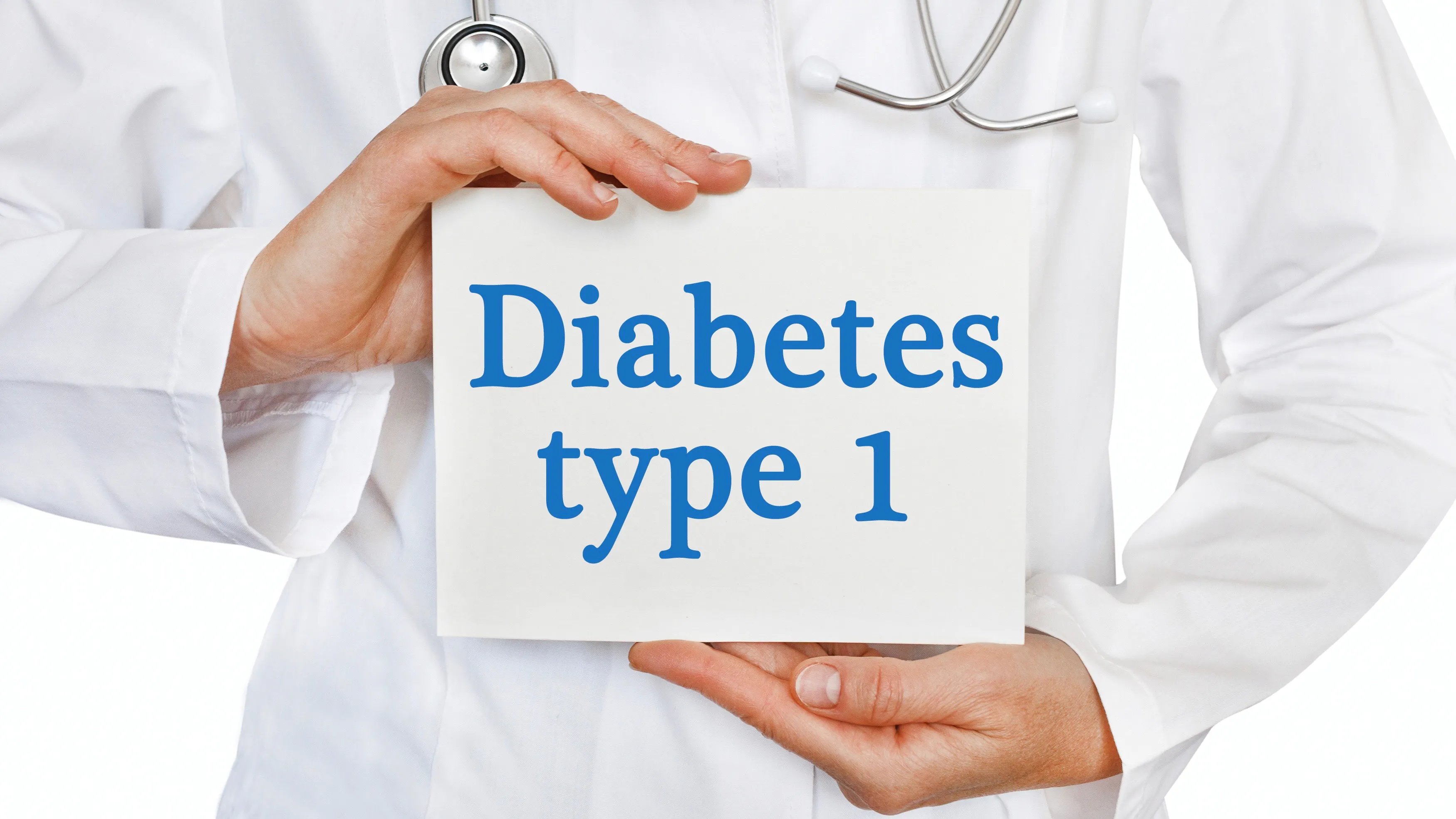If you have type 1 diabetes, your pancreas doesn’t make insulin or makes very little insulin. Insulin is a hormone that helps blood sugar enter the cells in your body where it can be used for energy. Without insulin, blood sugar can’t get into cells and builds up in the bloodstream. High blood sugar is damaging to the body and causes many of the symptoms and complications of diabetes.
Type 1 diabetes (previously called insulin-dependent or juvenile diabetes) is usually diagnosed in children, teens, and young adults, but it can develop at any age.

Type 1 diabetes is less common than type 2—approximately 5-10% of people with diabetes have type 1. Currently, no one knows how to prevent type 1 diabetes, but it can be managed by following your doctor’s recommendations for living a healthy lifestyle, managing your blood sugar, getting regular health checkups, and getting diabetes self-management education and support.
Type 1 diabetes is thought to be caused by an autoimmune reaction (the body attacks itself by mistake) that destroys the cells in the pancreas that make insulin, called beta cells. This process can go on for months or years before any symptoms appear.
Some people have certain genes (traits passed on from parent to child) that make them more likely to develop type 1 diabetes, though many won’t go on to have type 1 diabetes even if they have the genes. Being exposed to a trigger in the environment, such as a virus, is also thought to play a part in developing type 1 diabetes. Diet and lifestyle habits don’t cause type 1 diabetes.
It can take months or years for enough beta cells to be destroyed before symptoms of type 1 diabetes are noticed. Type 1 diabetes symptoms can develop in just a few weeks or months. Once symptoms appear, they can be severe.
Some type 1 diabetes symptoms are similar to symptoms of other health conditions. Don’t guess—if you think you could have type 1 diabetes, see your doctor right away to get your blood sugar tested. Untreated diabetes can lead to very serious—even fatal—health problems.
Risk factors for type 1 diabetes are not as clear as for prediabetes and type 2 diabetes, though family history is known to play a part.
Unlike many health conditions, diabetes is managed mostly by you, with support from your health care team (including your primary care doctor, foot doctor, dentist, eye doctor, registered dietitian nutritionist, diabetes educator, and pharmacist), family, teachers, and other important people in your life. Managing diabetes can be challenging, but everything you do to improve your health is worth it!
If you have type 1 diabetes, you’ll need to take insulin shots (or wear an insulin pump) every day to manage your blood sugar levels and get the energy your body needs. Insulin can’t be taken as a pill because the acid in your stomach would destroy it before it could get into your bloodstream. Your doctor will work with you to figure out the most effective type and dosage of insulin for you.
You’ll also need to check your blood sugar regularly. Ask your doctor how often you should check it and what your target blood sugar levels should be. Keeping your blood sugar levels as close to target as possible will help you prevent or delay diabetes-related complications.
Stress is a part of life, but it can make managing diabetes harder, including managing your blood sugar levels and dealing with daily diabetes care. Regular physical activity, getting enough sleep, and relaxation exercises can help. Talk to your doctor and diabetes educator about these and other ways you can manage stress.
Healthy lifestyle habits are really important, too:
Make regular appointments with your health care team to be sure you’re on track with your treatment plan and to get help with new ideas and strategies if needed.
Whether you just got diagnosed with type 1 diabetes or have had it for some time, meeting with a diabetes educator is a great way to get support and guidance, including how to:
Hypoglycemia (low blood sugar) can happen quickly and needs to be treated immediately. It’s most often caused by too much insulin, waiting too long for a meal or snack, not eating enough, or getting extra physical activity. Hypoglycemia symptoms are different from person to person; make sure you know your specific symptoms, which could include:
1. Shakiness.
2. Nervousness or anxiety.
3. Sweating, chills, or clamminess.
4. Irritability or impatience.
5. Dizziness and difficulty concentrating.
6. Hunger or nausea.
7. Blurred vision.
8. Weakness or fatigue.
9. Anger, stubbornness, or sadness.
If you have hypoglycemia several times a week, talk to your doctor to see if your treatment needs to be changed.